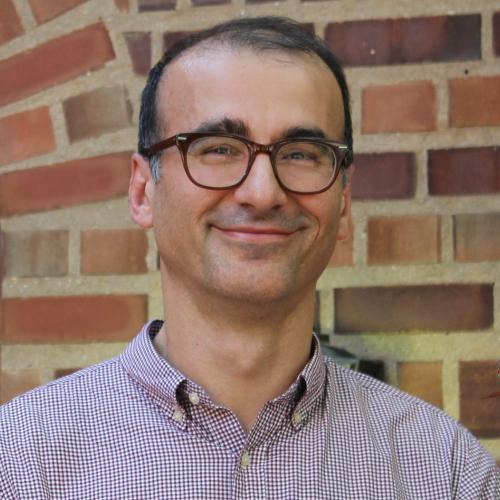Teaching Associate Professor David Dubin and Associate Professor Halil Kilicoglu have been named National Center for Supercomputing Applications (NCSA) Faculty Fellows for the 2021-22 academic year. This competitive program for faculty and researchers at the University of Illinois provides seed funding for new projects that include NCSA staff as integral contributors to the research.
Dubin received funding for "Analyzing and Visualizing Linguistic Variation in Monolingual and Bilingual Speakers," a project he will be conducting with Silvina Montrul, professor in the Department of Spanish and Portuguese and in the Department of Linguistics. The researchers plan to build a "syntactically and morphologically annotated corpus" with speech samples of 500 monolingual and bilingual speakers of Spanish and English in the U.S. and Mexico.
"Through improving workflow support and addressing the data management needs for this case study, our project will investigate why existing automation tools and encoding standards are underutilized, and how computational resources can better improve researchers' productivity and lead to new discoveries," said Dubin.
Dubin's research interests include the foundations of information representation and description, and issues of expression and encoding in documents and digital information resources. At the iSchool, Dubin teaches courses on information organization and access, and information modeling. In the Fall 2021 semester, he will draw on the ontologies and data models from his NCSA Faculty Fellow project for use as examples and case studies for his course, Knowledge Structures for Information Organizations (IS 595-KSI). Dubin received his PhD in information science from the University of Pittsburgh.
Kilicoglu received funding for his project, "Identifying Conflicting Claims in Clinical Literature Using Natural Language Processing and Knowledge Graphs," in which he plans to build a literature mining tool to more easily pinpoint biomedical claims made in scientific publications and how they relate to current knowledge.
"Conflicting information is common in biomedical research and can have serious consequences for clinical practice and public health," said Kilicoglu. "Patients, caregivers, and providers are increasingly exposed to conflicting health information through news and social media, which may exacerbate their cognitive biases and lead to errors in judgement. Understanding the evidence base around clinical claims, in particular the conflicts and controversies, is critical for establishing clinical practice guidelines and identifying knowledge gaps for which additional studies may be needed."
Kilicoglu's research interests include biomedical informatics, natural language processing, computational semantics, literature-based knowledge discovery, scholarly communication, science of science, and scientific reproducibility. Prior to joining the iSchool faculty, Kilicoglu worked as a staff scientist at the U.S. National Library of Medicine, National Institutes of Health, where he led the Semantic Knowledge Representation project. He holds a PhD in computer science from Concordia University.

